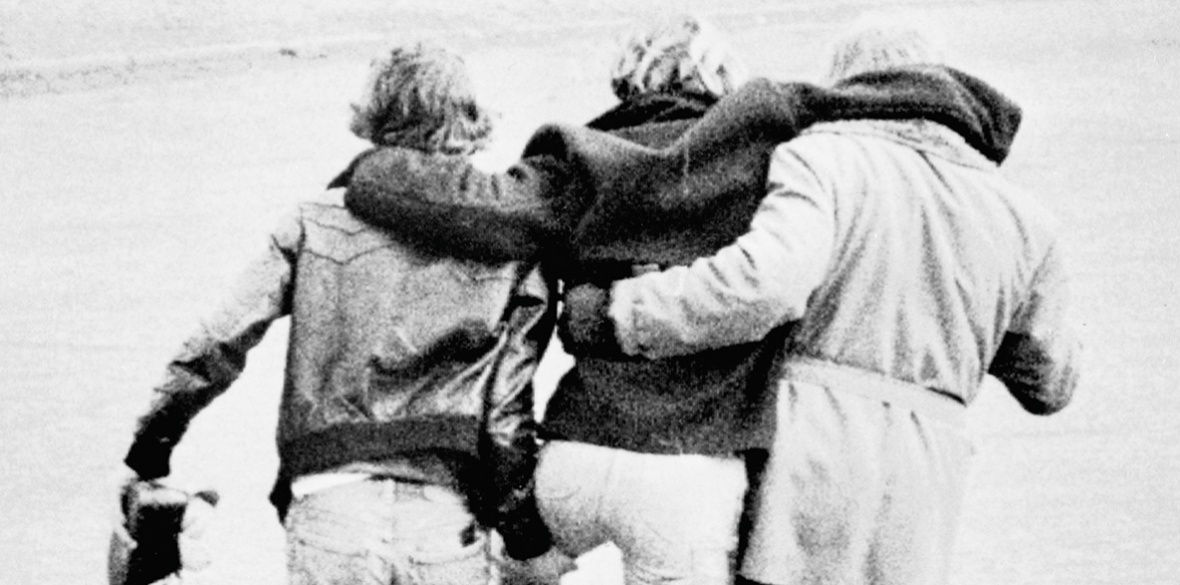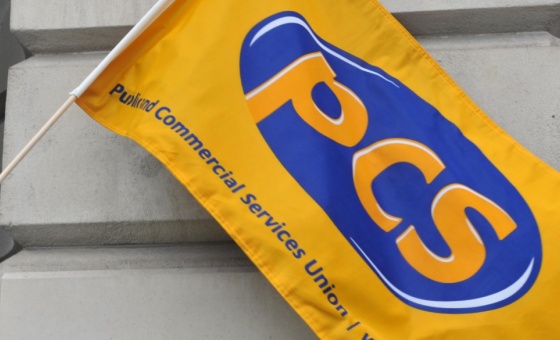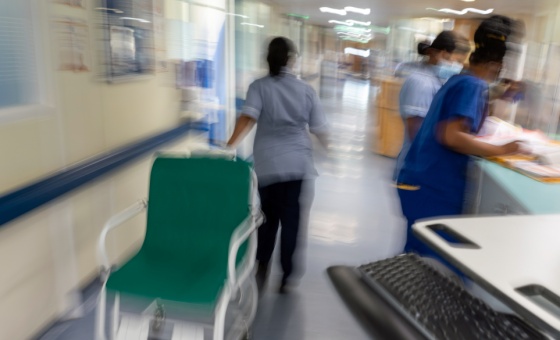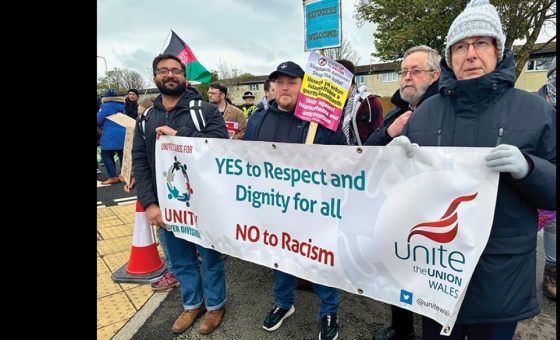This is the last article you can read this month
You can read more article this month
You can read more articles this month
Sorry your limit is up for this month
Reset on:
Please help support the Morning Star by subscribing here
BEING a member of Parliament is a huge privilege. As history shows, opportunities for bringing about change through parliamentary means don’t come along very often.
In the coming weeks members of the Scottish Parliament will have the chance, their only chance, to right some of the wrongs of the 1984-85 miners’ strike.
Of course, we cannot turn back the clock. All those lives destroyed because of the brutality of that dispute cannot be restored.
The psychological scarring cannot be undone. The families ripped apart cannot be put back together again, all of those years lost cannot be refound.
But when the Scottish Parliament considers the Scottish government’s Miners’ Strike Pardons Bill, which has been laid before it, there is a chance to convert this from a symbolic Bill to a meaningful Act. Not to rewrite history but to right historical wrongs.
The SNP government has responded to the years of ceaseless campaigning for justice for the miners.
The establishment of an inquiry led by John Scott QC, which looked into the policing of the dispute, followed intense pressure by the miners and their union outside Parliament and by Scottish Labour MSP Neil Findlay inside the Parliament.
The full force of the state was pitched against, not just the miners in their fight for jobs and an industry, but against their families, entire communities, and even a way of life.
That is why the full force of the state needs to be brought to bear now to address the huge injustices that were perpetrated.
As it stands the Bill will provide a pardon only to those convicted of non-violent acts, typically breach of the peace charges while on picket lines, at official demonstrations or on their way to them.
In so doing it fails to recognise the extent to which the strike did not start and stop at the colliery gate, but was waged in towns and villages.
And the police, as well as striking miners, were highly active in mining communities for a whole year. Miners did not just sit at home when they were not on picket duty.
And police harassment was not confined to the picket line. A false distinction is thus being created in the Bill between those deserving and undeserving of a pardon.
Miners arrested and convicted for offences in the community are not covered. They should be.
Another anomaly affects a number of miners convicted under the obscure 1875 Conspiracy and Protection of Property Act.
We have been told that this Act can cover violent and intimidatory conduct and, four decades on, there are no records to prove this wasn’t the basis for prosecution.
But in government evidence to Parliament just last month it was disclosed that there are 16 miners convicted of these charges and all were arrested and charged by the then Strathclyde Constabulary.
All of which rather belies the claim that records no longer exist. Moreover we know that most of these were for minor infringements like sticking up two fingers, or shouting “scab” at strike-breakers. These acts should be pardoned.
But perhaps the most controversial element of the government’s Bill is the absence of a compensation scheme.
We have been treated to various arguments for this glaring omission.
One is that employment law is not devolved to the Scottish Parliament. But remember the genesis of this Bill lies in miners arrested by the police in Scotland, prosecuted by the Procurator Fiscal service in Scotland and convicted by the Scottish courts during the strike.
The Scott inquiry concluded that there was “an element of arbitrary application of the criminal law by police, prosecutors and sheriffs.”
It is this process which in turn led to a slew of summary dismissals by the National Coal Board in Scotland which warrants compensation.
Another specious argument is that the Scottish Parliament did not exist at the time of the dispute therefore cannot be held in any way financially liable.
But there is clear precedent for this. At the same time as the miners were on strike, NHS patients were being treated with blood products infected with hepatitis C and HIV.
Following the Penrose inquiry, the Scottish government introduced a Bill to Parliament which set up a compensation scheme: the Scottish Infected Blood Support Scheme for those infected and affected. It can be done.
We are also asked to believe that the establishment of a compensation scheme would unduly hold up the Bill.
But a line in the Bill to establish such a principle could be easily incorporated with the details worked out through statutory instrument and regulation.
If the last two years has taught us anything it is that laws and financial support can be put in place in double-quick time if there is sufficient political will and public support.
There is a Scottish dimension to what happened during the dispute. While it is true that the police in Scotland did not wear the kind of riot gear chosen by other forces in other coalfield communities, in Scotland striking miners were twice as likely to be arrested and three times as likely to be dismissed during the strike as anywhere else.
Thirty per cent of all NCB dismissals arising from the strike were in Scotland.
In the end this is a matter of political conviction and moral judgement. The miners were wrongly criminalised and paid a heavy price.
Society owes them a debt, and to those MSPs and ministers who are havering, the question they must ask is if not now, when, if not us, who?
For the sake of the miners and their families, now is the time, now is the hour.
Richard Leonard is MSP Central Scotland (Region) and was leader of the Scottish Labour Party from 2017 to 2021.










